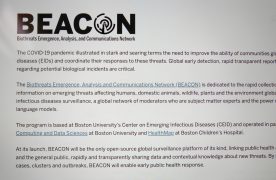Boston is a city characterized by its history. It seems that one cannot walk down a street without passing a plaque honoring historical significance. Founding fathers resided in our city and we walk the same streets today that they walked. As such, preservation exists inextricably in our identity. It’s just who we are.
As such, The Daily Free Press editorial board endorses “yes” on Boston’s Ballot Question 5, as a means to further the preservation and respect for the city we call home, if for a short time or if forever.
The overwhelming support stems from a recognition of the potential good that can come from passing the CPA. Though it is only being voted on in 16 communities, those municipalities are major players in the commonwealth. Boston, in particular, sets an example with its approach to conservation and respect for the past, as well as things like open space. By passing the CPA, Boston has the opportunity to expand on those projects.
There is also substantive evidence of the projects that have benefitted from the CPA thus far, outlined, compiled and accessibility to the public, on the Community Preservation Coalition’s website. The resource further assures voters of the legitimacy of the potential projects and can foreshadow potential future projects.
As an editorial board, we are not used to the ideas of gentrification or preservation. We have written editorials on the value of affordable housing and our role in destroying its existence, and we have written on the value of maintaining beloved city landmarks like the Citgo sign. It is worth highlighting that the CPA will help make both ideals theoretically more prevalent.
According to pro-CPA campaigner Yes on 5’s website, funding is the missing component of affordable housing.
“The adoption of CPA will help to support affordable housing initiatives throughout the City today and for future generations,” the site stated. “Mayor Walsh’s plan, Housing a Changing City: Boston 2030, will help tenants attain new affordable rental units and assist working families with buying their first homes, directly benefitting from funds generated through CPA.”
The major point of apprehension stems from raising taxes. Yes, a 1 percent property tax surcharge would be added to taxpayers’ bills. Yet, that surcharge will only be added if a property is valued at over $100,000, and those at risk can petition for an exemption, according to a WBUR article.
The actual cost of the tax should also be examined before immediately slashing it from existence. The City of Boston has created a CPA tax calculator to make this process transparent, and also to show residents that the tax is not at all exorbitant. On average, according to the WBUR article, the owners of a property with a value that averages $500,000 would only pay approximately $24 per year.
As college students, we may glance over this question because of its perceived indirect effect. That is an incorrect assessment. On the contrary, this question directly affects our quality of life in the city we’ve chosen to live in. We frolic in the parks, we enjoy the green space and many of us live in historical buildings. These are all things that could be funded by the CPA and that we could see more of if the proposal passes.
Vote yes on Question 5 for the preservation of Boston. It’s just who we are, and it’s who we should continue to be for years to come.













